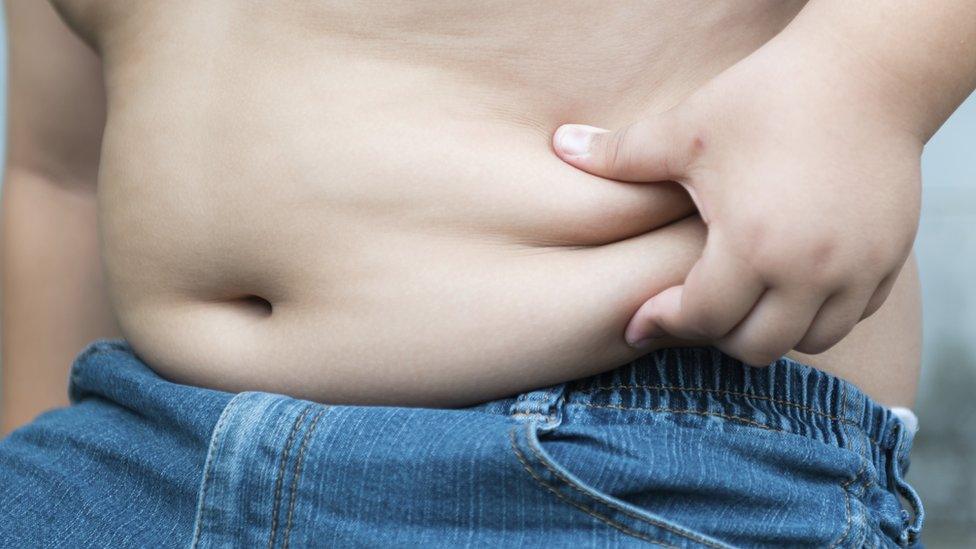UK lags behind other rich countries on child inequality
- Published

The UK is lagging behind other rich countries on reducing inequalities between rich and poor children, a Unicef report says.
The UN body set up to promote the rights and wellbeing of children highlights "concerning gaps in health, education, and income".
The lack of progress means ambitions to eradicate child poverty are unlikely to be realised in coming years, it adds.
The government said there were 300,000 fewer children in poverty since 2010.
The gap between rich and poor had narrowed in the UK in recent years, largely because the income of the poorest families had fallen more slowly than that of the average household, Unicef said in its Report Card 13 report.
But Unicef added that were it not for benefits, the income gap in Britain would be among the greatest in Europe.
One area of concern was the difference in the UK between wealthier and poorer children's performance in reading, maths and science.
Overall, British pupils were ranked 25th out of 37 countries, behind their counterparts in Slovenia, Poland and Romania.
Another key area of concern was the disparity in healthy behaviours, predominantly consumption of fruit and vegetables, among children of different social backgrounds.
'Benefits freeze'
The UK was ranked bottom for the contrast in healthy eating between well-off and poorer children. It also did badly on measures of physical activity,
Unicef UK's deputy executive director, Lily Caprani, said: "Britain can and must do better. Inequality between children is damaging their lives and aspirations.
"Taking children's rights seriously means acting with urgency to make sure no child is left behind.
"The UK government should adopt, as a matter of urgency, a childhood obesity strategy that promotes and supports healthy lifestyles for low-income children.
"It must also act to further reduce income inequality, which includes protecting social transfers [benefits]."
A spokesman for the Department of Work and Pensions said it was working to eliminate child poverty and improving life chances for children.
"We know there's more we can do, and that's why we've introduced the National Living Wage, which is increasing the incomes of the lowest paid," he said.
"All infant pupils can now get free school meals - meaning 1.3 million more children get a nutritious free meal at lunchtime, saving families hundreds of pounds. And we continue to spend £80bn a year to provide a safety net for those who need extra support."
Matthew Reed, chief executive of the Children's Society, said: "It's time we renewed the fight against child poverty in Britain, and the government could make a good start by abandoning its planned four-year benefits freeze, which will make life harder for millions of children.
"It should also stop trying to reduce the support available through tax credits, which as Unicef's report makes clear, have been essential in preventing the gap between rich and poor children in the UK from getting even wider."